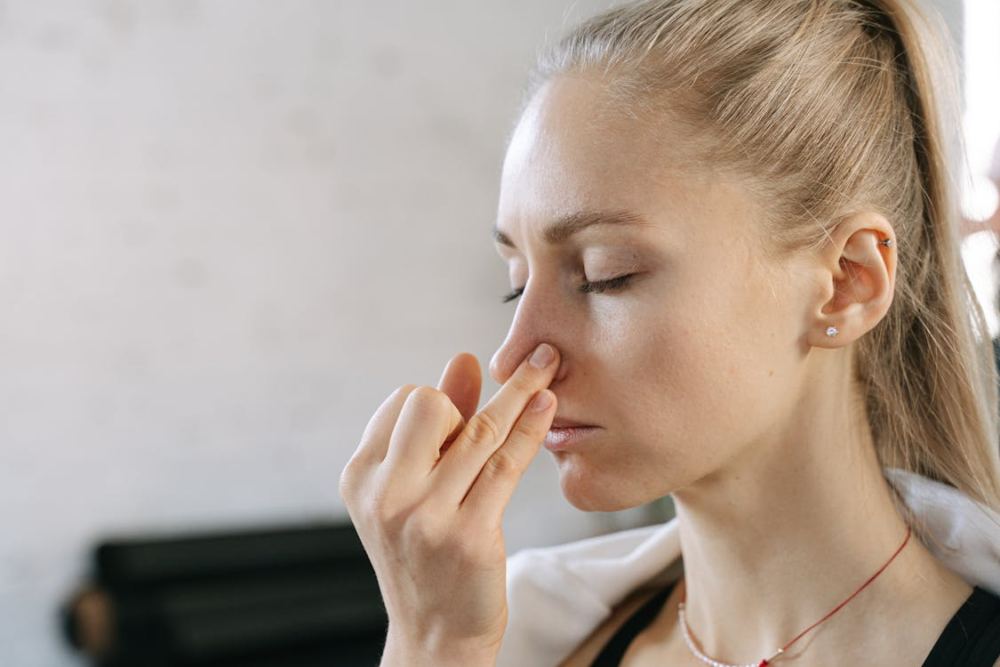
Why does the inside of the nose itch: allergy or infection?
An itchy nose is an unpleasant sensation that almost everyone has experienced. Sometimes it's just a short-term reaction to dry air or dust, and sometimes it's a symptom of a more serious condition, such as allergies or a viral infection, writes IZ. In this article, we'll look at the main causes of an itchy nose, how to diagnose it, and tips for relieving the condition.
Content
- Why does the inside of the nose itch: allergy or infection?
- The most common causes of an itchy nose
- Allergy
- Respiratory tract infections
- Dry air
- Reaction to stimuli
- How to distinguish an allergy from an infection?
- What to do if your nose itches?
- When to see a doctor?
The most common causes of an itchy nose
Allergy
This is one of the main causes of itching inside the nose. When the body comes into contact with an allergen (pollen, animal hair, dust mites, mold, etc.), the immune system overreacts by producing histamine. This leads to itching, sneezing, a runny nose, and sometimes watery and red eyes.
Allergy symptoms:
• constant itching in the nose;
• frequent sneezing;
• watery nasal discharge;
• nasal congestion (sometimes);
• itching in the throat or eyes.
Respiratory tract infections
Colds, caused by viruses or bacteria, can also cause irritation of the nasal mucosa. In the early stages of a cold, itching may be one of the first symptoms, accompanied by sneezing and a dry nose.
Symptoms of infections:
• itching on the background of general malaise;
• fever;
• sore throat;
• cough;
• thick nasal discharge (yellow or green).
Dry air
In winter, when heating or air conditioning is used, the air in the room becomes too dry. This dries out the nasal mucosa, causing discomfort, itching, and even microcracks.
Reaction to stimuli
Smoke, perfume, cleaning chemicals, or even strong odors can cause a short-term itchy nose. This is not an allergy, but it still irritates the mucous membrane.
How to distinguish an allergy from an infection?
| Sign | Allergy | Infection |
| Beginning | Sudden, after contact with an allergen | Gradual, 1-2 days after infection |
| Temperature | Missing | Often elevated |
| Nasal discharge | Transparent, watery | Thick, yellow or green |
| Associated symptoms | Itchy eyes, tearing | Sore throat, cough |
| Duration | As long as contact with the allergen continues | 5-10 days |
What to do if your nose itches?
If you suspect an allergy:
• consult an allergist;
• take tests (for example, skin tests);
• use antihistamines (as recommended by a doctor);
• minimize contact with possible allergens;
• ventilate the room and use air purifiers.
If you suspect an infection:
• drink plenty of fluids;
• adhere to bed rest;
• rinse your nose with saline solution;
• take antiviral or anti-inflammatory medications as needed.
Universal tips:
• humidify the air in the room;
• do not touch your nose with dirty hands;
• avoid excessive use of vasoconstrictor drops.
When to see a doctor?
Itchy nose does not always require medical attention, but if symptoms last more than 7–10 days, worsen, or are accompanied by fever, headache, and purulent discharge, consult an otolaryngologist or general practitioner.
As a reminder, we previously wrote about how to prepare for cataract surgery.

